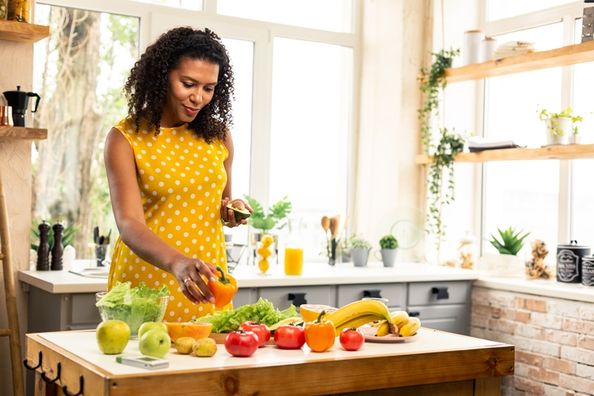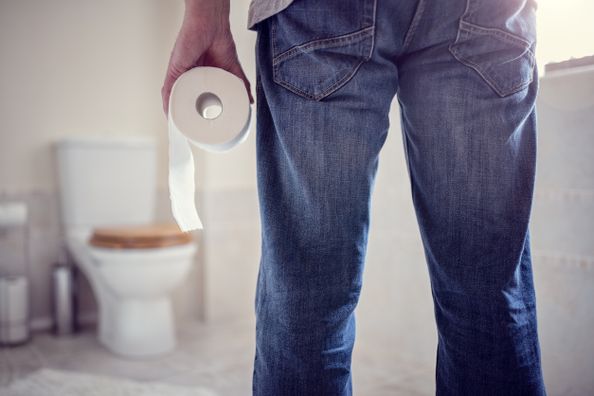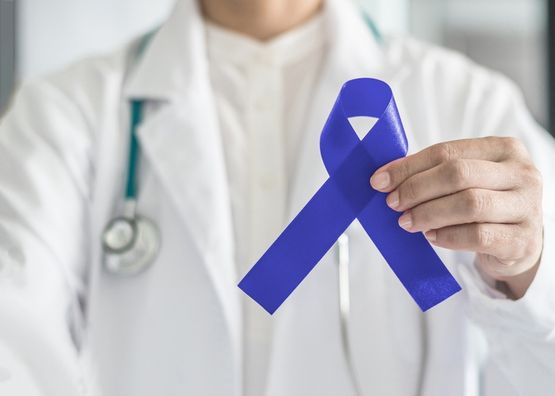Colorectal cancer is one of the most common cancers affecting both men and women in the United States today. In fact, according to the American Cancer Society (ACS), nearly one in 22 men and one in 24 women are diagnosed with colorectal cancer over the course of their lifetime. The good news is that colorectal cancer is one of the few preventable forms of cancer. Completing a diagnostic screening, such as a colonoscopy, is your best defense. A colonoscopy allows your gastroenterologist to identify and remove any abnormal growths, called polyps, found in your large intestine. This is an effective way to prevent colorectal cancer because in many cases, the polyps are found and removed before they have had the chance to develop into cancer. Additionally, if the polyp has already become cancerous but is removed during its early stages, it is much easier to treat.
Taking steps to prevent, identify and remove polyps is an important part of maintaining your digestive health and preventing colorectal cancer. Board-certified gastroenterologist, Kaitlin Wanta, DO, explains what a polyp is, why they form and tips to prevent them.
A polyp is a growth that forms on the lining of your colon (also referred to as your large intestine). Normally, as new cells are needed to perform essential body functions, the cells in your body will grow and divide. In some cases, mutations in certain genes cause cells to divide even when new ones aren’t needed. In the colon and rectum, these additional cells can accumulate forming polyps along the lining of your large intestine. Some polyps are raised and shaped like a mushroom while others can look like small bumps that rest flat against your intestinal wall. Initially, most polyps are harmless but over time some can develop into cancer.
There are several different types of polyps and some are more likely to progress into cancer than others. Certain chronic inflammatory diseases such as ulcerative colitis or Crohn’s disease can cause polyps to develop. These polyps may be related to chronic inflammation that may be harmless, although in some cases they may experience precancerous changes over time. Other types such as adenomas (which are the most common) and serrated polyps, are more likely to become cancerous. The size of the polyp and its location can also play a role in whether or not a polyp will become cancerous. In general the larger the polyp’s size the greater your risk.
Polyps are common and anyone can develop them. In fact, between 20 and 30 percent of adults will form polyps over the course of their lifetime.
Certain factors can increase your risk of developing a polyp including:
Age
You are over the age of 50.
Family History
You have family members, especially first-degree relatives (parents or siblings), who have had polyps or certain hereditary disorders such as Lynch syndrome, Gardner’s syndrome or serrated polyposis syndrome.
Smoking
You currently (or previously) smoked tobacco products.
Weight
You are overweight or obese, especially if you carry extra weight in your mid-section.
Most polyps don’t cause noticeable symptoms so it is important to complete a colonoscopy to detect these abnormal growths as soon as possible. In some cases, polyps can cause symptoms including:
Bleeding
Rectal bleeding may indicate the presence of colon polyps or can be a sign of other conditions like hemorrhoids. Alert your primary care physician if you experience rectal bleeding to determine its cause.
Changing stool color
Blood within your digestive tract or rectum can appear as red streaks in your stool or can make stools appear darker or black. A change in color doesn’t always mean there is a problem and may simply be caused by the foods and medications you consume. Your physician can help you pinpoint the cause of the color change.
Different bowel habits
If you experience changes in your bowel habits that last longer than a week, alert your physician.
Iron deficiency
If you have a polyp that has begun to bleed, you may develop an iron deficiency (anemia) over time. This is because prolonged bleeding depletes the iron needed for your red blood cells to carry oxygen throughout your body, creating a deficiency that can leave you feeling tired or short of breath.
Pain
Larger polyps may begin to obstruct your bowel, causing pain or cramping in your abdomen.
If a polyp is suspected, your gastroenterologist will perform a diagnostic exam of your large intestine which may include a:
Colonoscopy
Your gastroenterologist will use a long, thin tube with a camera and light attached so that they can view your colon and look for any polyps that may have formed. A colonoscopy is the most thorough and effective exam, as it allows your doctor to view all the areas within your colon where cancers may grow.
Digital rectal exam
Your physician will manually examine your rectum for abnormalities that may be present within your rectum and a small portion of your bowels. Depending on the outcome of your exam, your gastroenterologist may recommend completing a colonoscopy in order to view your entire colon.
Fecal occult blood test
You will submit a sample of your stool to check for small amounts of blood which can be a sign of polyps. If blood is detected, your physician will likely recommend you complete additional testing to determine the source of the blood.
Sigmoidoscopy
Similar to a colonoscopy, your gastroenterologist will use a thin tube, light and camera to examine a portion of the colon. A sigmoidoscopy utilizes a shorter tube than the one used in a colonoscopy, which reaches only the lower portion of your colon.
If a polyp is discovered, your gastroenterologist will remove it and send it to a pathologist for additional testing. The pathologist will determine if the polyp is a:
- Hyperplastic polyp — which is not cancerous
- Adenomatous or serrated polyp — which is not currently cancerous, but can become cancer if it’s not removed
- Malignant polyp — which is cancerous
You can significantly reduce your risk of developing colon polyps and colorectal cancer by staying up-to-date on cancer screenings like colonoscopies. If a pre-cancerous polyp is not removed, it will continue to grow overtime.
Certain lifestyle factors can also reduce your risk of developing polyps including:
Eating a balanced diet
Enjoy a well-balanced diet rich in fiber by selecting a variety of fruits, vegetables and whole grains and limiting your intake of fats, processed foods and red meat.
Staying active
Physical activity can help support your digestive system as well as maintain a healthy weight. Strive for 30 minutes of moderate activity each day.
Knowing your risk
Talk to your primary care physician about your personal and family health history. This can help to determine your risk of developing a variety of health conditions including colorectal cancer. If you are at an increased risk, your physician may recommend you start screening earlier or more frequently.
Limiting your alcohol consumption
Alcohol consumption has been linked to an increased risk of many health conditions and cancers including colorectal cancer. To reduce your risk, avoid excessive alcohol consumption, limiting your intake to two drinks or less per day for men, or one drink per day or less for women.
Stopping smoking
Tobacco products contain several harmful chemicals that not only damage your lungs, but over time, can also lead to cell mutations that can cause cancer. If you smoke, quitting has many immediate and long-lasting health benefits including lowering your risk of colorectal (and many other types) cancers.
Taking vitamins
Some research has shown that having inadequate vitamin D levels may increase your risk of colorectal cancer. Be sure to complete your annual bloodwork to monitor your vitamin levels. If your vitamin D is lower than 20 ng/ML, talk to your physician about what steps you can take (including vitamin supplements) to raise it.
While you may not be able to prevent a polyp from forming entirely, there are several ways you can reduce your risk. Additionally, because many polyps and early-stage colorectal cancer don’t cause noticeable symptoms, it is important to stay up-to-date on preventive screenings, like a colonoscopy. Early detection and prompt treatment is your best defense against colorectal cancer. You can schedule an appointment with one of our gastroenterologists online or by calling 630−717−2600.
Health Topics:







